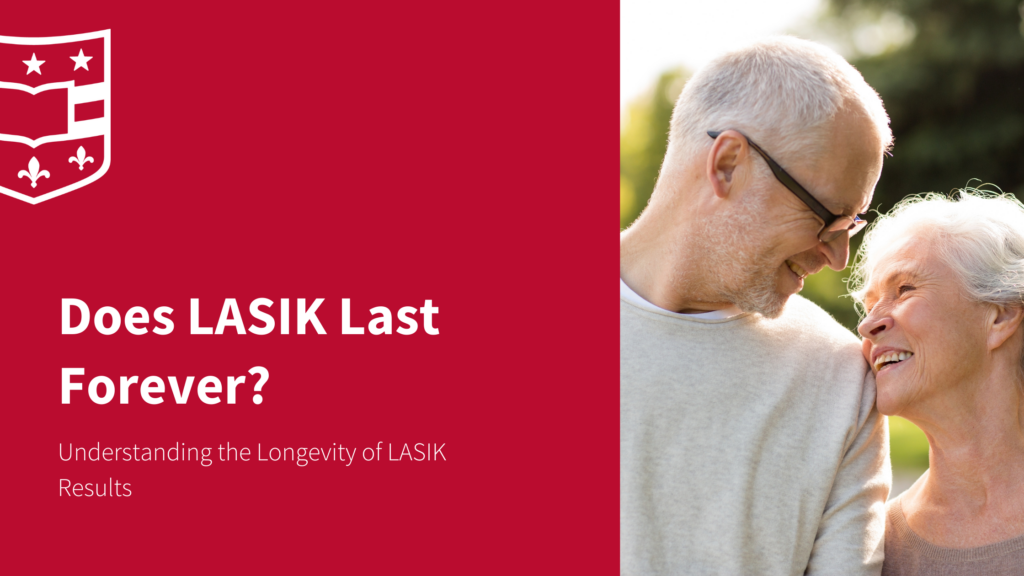One of the most common questions people ask about LASIK is, “Does it last forever?”
LASIK has given millions of people the freedom to see clearly without glasses or contacts, but understanding the longevity of LASIK results and the role of aging in vision changes can help set realistic expectations. In this blog, we’ll dive into how long LASIK results typically last, factors that affect long-term vision stability, and what to expect as you age.
How Long Do LASIK Results Last?
LASIK permanently reshapes the cornea to correct vision issues, which means that the physical correction it provides is lasting. Studies show that most patients experience stable vision for many years following LASIK, with a high satisfaction rate. However, it’s essential to understand that LASIK doesn’t prevent natural changes that occur as the eye ages, such as presbyopia or age-related eye conditions.
The Role of Aging in Vision Changes
Around the age of 40, most people start experiencing presbyopia, which is the gradual loss of near vision. LASIK does not stop presbyopia, as it primarily corrects nearsightedness, farsightedness, and astigmatism by reshaping the cornea, not by altering the eye’s internal lens. As a result, LASIK patients may still need reading glasses or alternative solutions for near vision as they age.
Additionally, certain age-related eye conditions, such as cataracts or age-related macular degeneration, can impact vision over time. While LASIK itself won’t cause these conditions, the effects of aging mean that even LASIK patients may experience a need for additional vision correction later in life.
Factors That Affect LASIK Longevity
- Age at the Time of LASIK
Younger patients, particularly those in their 20s and 30s, often enjoy longer-lasting results from LASIK because their vision is generally more stable. Those over 40 may still achieve great results but might experience presbyopia in a few years, which could require reading glasses or other solutions.
- Stability of Prescription
LASIK is typically performed when a person’s prescription has stabilized. If you undergo LASIK during a time of fluctuating vision, there’s a higher likelihood that changes in your prescription could lead to some need for future correction.
- Lifestyle and Eye Health
Good eye care practices—such as regular eye exams, a healthy diet, and avoiding smoking—can help preserve eye health over time, contributing to longer-lasting LASIK results. Conditions like diabetes, which can impact vision, may also affect the longevity of LASIK results.
What to Expect Long-Term
Most patients can expect to maintain their corrected vision for 10–20 years post-LASIK. If vision changes significantly after LASIK, enhancements or touch-up procedures may be an option. These adjustments are usually minor and are performed years after the initial surgery to maintain clear vision. However, eligibility for enhancements will depend on factors such as corneal thickness and overall eye health.
Is LASIK a Good Long-Term Investment?
For most people, LASIK provides years or even decades of freedom from glasses and contacts, making it an excellent long-term investment. However, being mindful of natural age-related changes in vision will help set realistic expectations. The freedom LASIK offers can be a worthwhile benefit, even as you consider that future age-related changes may require additional vision solutions.
LASIK offers a lasting correction for common refractive errors, but it doesn’t prevent age-related vision changes. Knowing what to expect and maintaining good eye health can help you enjoy clearer vision for years to come. If you’re curious about LASIK or have specific questions about your long-term vision needs, reach out to Dr. Eric Polk for guidance on what LASIK can offer you today—and in the future.

